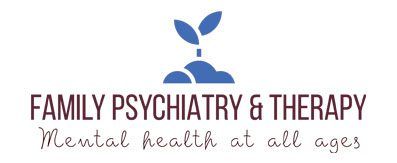Depression is one of the most prevalent mental illnesses in the United States, affecting millions of children, teens and adults across the nation. If you or a loved one are suffering from this mental health condition, odds are very good that you already have a strong understanding of the negative impact it can have on afflicted individuals. Major depression can cause those affected to lose energy, sleep, concentration and self-esteem, leading to a number of damaging behavioral and physical symptoms. Moreover, severe forms of depression can cause crippling feelings of hopelessness, anxiety, apathy and sorrow, resulting in self-harm and suicidal thoughts. In order to protect yourself and your family from the adverse effects of depression, you need to develop strategies for coping with and mitigating these dangerous symptoms.
At Family Psychiatry and Therapy, we’re passionate about connecting you and your family with all of the tools needed to fight through mental distress and regain control of your lives. That’s why we offer exceptional psychiatric support and services to help children, teens and adults alike with the development and implementation of effective coping techniques and treatments for depression and anxiety. Today, we’ll be discussing one of the simplest and most effective remedies for these serious mental health issues: exercise.
How Does Exercise Affect a Depressed Person?
According to the Anxiety and Depression Association of America (ADAA), daily exercise is considered vital for maintaining mental fitness and well-being because it reduces stress, fights off fatigue and enhances overall cognitive function.
All of this makes it incredibly helpful for individuals who are grappling with low levels of energy, high levels of stress or concentration struggles. Moreover, the ADAA asserts that “regular aerobic exercise has been shown to decrease overall levels of tension, elevate and stabilize mood, improve sleep and boost self-esteem.” In most cases, it only takes about five minutes of exercise to trigger its anti-anxiety effects, meaning that one can effectively mitigate depression, fatigue and anxiety throughout the day by participating in five or six short sessions of aerobic activity.
The secret behind the incredible effects of exercise lies in the endorphins that it releases into the body. Endorphins are natural chemicals that interact with receptors in your brain to reduce perception of pain and trigger positive feelings. They’re responsible for those powerful feelings of euphoria or “runner’s high” that you might experience after the end of intense workout sessions. Considering how impactful these chemicals are, it’s not surprising that regular exercise is used by mental health experts to treat mild and moderate depression. By taking full advantage of endorphins and their powerful benefits, you can ward off feelings of stress, anxiety and depression and replace these negative emotions with a new, positive perception of life.
Which Types of Exercise Are Most Beneficial for Depressed People?
Now that you understand how and why exercise helps with depression, you just need to focus on developing a workout plan that suits your interests and constraints. After all, it’s tough to stick to an exercise routine when you’re constantly swamped by work, school, volunteering or family obligations. Luckily, psychologists that study how exercise relieves anxiety and depression state that a 10-minute walk around the block can be just as beneficial for your emotional well-being as an intensive workout that lasts 45 minutes. Consequently, you don’t have to worry about committing to a demanding and time-consuming exercise plan when trying to manage your depression.
Here are a few physical activities that are excellent for releasing endorphins and eliminating stress:
- Yoga
The American Osteopathic Association states that yoga can provide the body with a variety of phenomenal physical and mental benefits, including the management of stress and anxiety. Furthermore, most forms of yoga utilize meditation and breathing techniques that promote mental clarity and calmness. As a result, many people use this form of exercise to mitigate sleeping problems, headaches and concentration problems.
- Biking
Taking a bike ride through a few local trails or parks each day is a fantastic way to refresh your mind and kick your endorphins into action. Moreover, taking in all of the pleasant sights, sounds and smells of nature during your ride can do wonders for your mood. We recommend switching up which bike trails and attractions you visit on these trips a few times a month. This diversification will keep you enthusiastic about riding by keeping it from becoming too routine. You might even consider buying a tandem bike to share your outdoor adventures with a friend, spouse or family member.
- Recreational Sports
Joining a local recreational basketball, volleyball or soccer team will provide you with ample opportunities to exercise while building new relationships with others. These activities are still competitive, but they’re played mostly for fun, so you won’t have to worry about stressing out over your performance or abilities. Depending on the time of year and your preferences, you could also look into participating in skiing, snowboarding, backpacking and more!
Note: There are hundreds of fun physical activities you can use to relieve your stress and enjoy yourself, so feel free to experiment and ask the people around you for suggestions. As long as you’re up and moving, you can’t go wrong.
Request an Appointment With Family Psychiatry and Therapy Today
No matter how scary or hopeless your fight against depression may seem, you should never lose hope. Remember, even the most severe forms of depression can be treated. And the earlier that you begin professional treatment, the more effective it will be. With the help of an experienced mental health expert, you can manage your depression with medication (like antidepressants), psychotherapy or a combination of both. The road may be hard and filled with obstacles, but with the love and support of your friends, family and doctor, you can and will overcome your depression.
To get started, contact our office and arrange an appointment as soon as possible. You can also reach out to us if you need additional advice or strategies for coping with depression. We’re always here for you.



